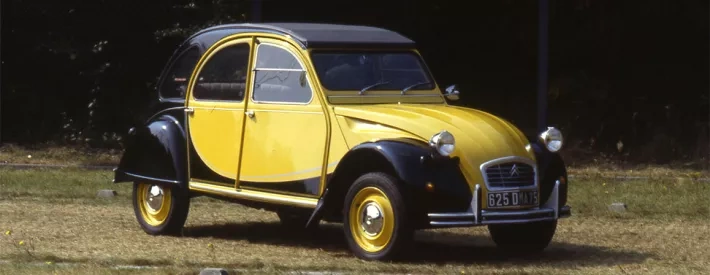Getting ready for an older fleet

Research reveals that there could be more classic cars arriving in workshops needing repair, but what vehicles can you expect to be repairing?
Research by Autodata suggests that technicians need to be prepared to accept a growing number of classic cars for repair in their workshops as the age of vehicles on the road increases.
Today, the average age of cars in the UK stands at 8.4 years old, while in the EU, it’s even higher at 11.5 years. And it’s not just cars. The figure for light commercial vehicles in the EU now rests at 11.6 years.
Jamie Willis, Technical Support Supervisor at Autodata said, “The COVID outbreak is seen as a more recent protagonist for this latest trend, as drivers opt to hold on to their cars for longer, but that’s not the only reason. Some drivers still think switching to an electric vehicle is their next move; however, many are nervous due to the technology and cost, and simply want to continue in their current vehicle until the time is right for them to change.”
According to Willis, there is also a longer-term trend. “As vehicles have become more reliable, better built, and able to handle the higher mileage needs that age throws at them, drivers have increasingly been keeping vehicles, with many turning into collectors’ items.”
Autodata is seeing an increasing number of repairs being conducted on cars from the 1960’s through to the 1990s, all of which are increasingly viewed as cherished vehicles to keep. This nostalgic reflection means that, as drivers hold on to their vehicles longer, the onus on the aftermarket is increasing and technicians are progressively being called upon to service these older vehicles with a wider range of issues. Those vehicles hitting the Autodata servers for repair, range across a whole host of manufacturers from Alfa Romeo to MG and Mercedes-Benz to Volvo.
Chris Wright, Managing Director of Autodata, added, “With electric and hybrid legislative deadlines on the horizon, we anticipate consumers will keep vehicles longer than we’ve experienced before.
“This makes staying current on service data for a vehicle extremely important. Service data for a vehicle doesn’t stay constant and, at Autodata, we regularly update our information to reflect manufacturer updates for vehicles 30 years old and older. Old service manuals don’t cut it anymore if you want to keep that cherished motor running sweetly!”
So what vehicles could you expect to arrive at your workshop, here are the top 8 vehicles proving to be classics over the last few decades:
From the 1960s
- Fiat 500 (1965-1973)
- Volvo 142 (1968-1975)
- Volvo 121/Amazon (1968-1971)
- MG Midget (1969-1974)
- Triumph TR6 (1969-1972)
- Jaguar E-Type (1968-1972)
- Citroën 2CV-4 (1968-1978)
- Saab 96 (1967-1976)
From the 1970s
- Citroën 2CV-6 (1970-1990)
- Land Rover Series III (1971-1983)
- Volkswagen Transporter T2 (1971-1976)
- Alfa Romeo Alfetta (1978-1981)
- Volkswagen Transporter T3 (1979-1983)
- Volkswagen 1300 (1976-1979)
- MG Midget (1975-1980)
- MG MGB (1978-1980)
From the 1980s
- Mazda MX-5 (1989-1993)
- Volkswagen Transporter T3 (1982-1990)
- Volvo 240 (1989-1993)
- Volkswagen Transporter T3 (1984-1990)
- Volvo 740 (1989-1990)
- Toyota Hilux (1988-1997)
- Peugeot 205 XUD7 (1983-1986)
- Volkswagen Golf II (1987-1991)
From the 1990s
- Volkswagen Transporter T4 (1990-1997)
- Opel/Vauxhall Astra-G (1998-2000)
- Volvo 940 (1995-1998)
- Mercedes-Benz SLK (1996-2000)
- Toyota Corolla (1997-2000)
- Nissan Micra (1992-2000)
- Land Rover Defender (1994-1999)
- Volvo 850 (1993-1997)




